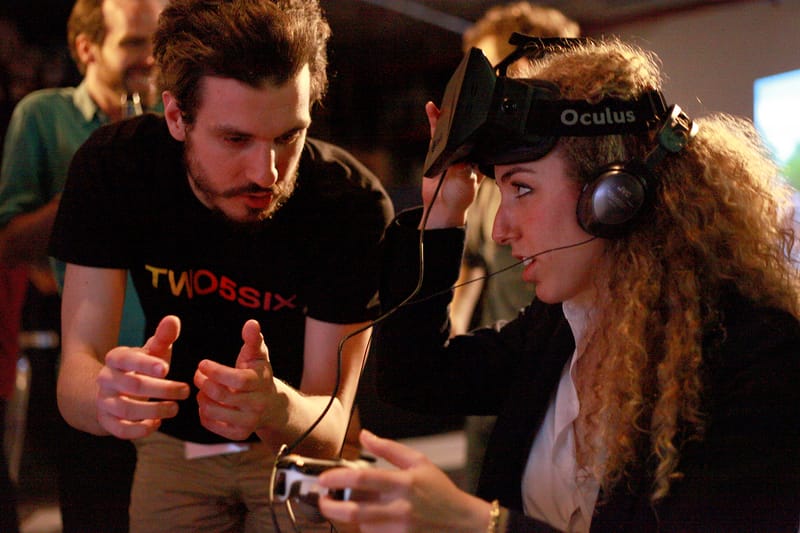I am a Millennial. Which means I was born somewhere between 1980 and 2000. Which means I could be anywhere between 34 and 14. As it happens, I’m 24. Which means that maybe “Millennial” isn’t that useful of an idea.
Generations and generalizations pin people—those self-contradictory piles of meat, bones, and soul—to words. For example, our culture has steamrolled “The Sixties” into an extended Woodstock montage through force of repetition. The same thing is happening with Millennials. Words that have been used as a shorthand for us are becoming surgically attached to our identity: lazy, entitled, selfish. Signing up for Facebook will go down as the closest we got to Woodstock.
But there are still some useful things that we can say about Millennials as a group.
We Millennials distrust institutions, corporations, and government, although we’re no less dependent on them than anyone else. The only groups faring worse than Congress, who we trust at a rate of 14%, are Wall Street (12%), and The Media (11%). We live in a world defined by doubt and uncertainty—only 17% of us think America is heading in the right direction. It’s a tenuous time. Success and failure are both possible, but we see the latter as more likely than the former.
We don’t have the slightest idea how the technologies our lives utterly depend on work. We take bets on software daily, pony up to service companies month-to-month, and genuflect to the gadget-makers once every few years to make sure we don’t have to know.
But doubling down like that contributes to aggressive inequality, terrifying mergers, unsafe working conditions, gigatons of carbon dioxide, snow in September, and eggs cooking on sidewalks in May. We care about it all. But not enough to stop.
We’re terribly good consumers. We do businesses’ advertising for them through social media and something vague-yet-menacing known as “engagement.” Hell, I’m doing it right now for the Pokémon Company.
We’ve become so dependent on the value of our personal data—and so accustomed to receiving targeted ads in exchange for free services—that, in a down economy, we’re becoming increasingly unsure of how else the outside world values us. 15.5% of us between the ages of 18 and 29 are unemployed, so many of us turn that ironically upbeat period of “funemployment” into an opportunity to work on twenty-first century problems with defensively opaque names like “personal brand” and “social media presence.” We churn out likes and words and photos anxiously for 5.4 hours a day on average, certain that that’s what we’re supposed to do, but uncertain of why else we’re doing it.
To quiet our fears of becoming anonymized in a time when our individual preferences define our value to others, we collect badges. They mark our progress, delineate the haves from the have-nots, measure us. Some of us scramble to climb the charts; most stay content with wherever we’ve wound up. They make us petty and hostile and factionalized. And, worst of all, they keep us happy.
We get challenges and advertisements and notifications to assure us that the world is not indifferent to us.
We’ve always had near-perfect control over what we don’t see. Our media biases are broadly liberal and highly social—more than 50% of us get our news and views from Colbert and Stewart. 41% of Millennials are mostly or consistently liberal in their views and voting, and the conservatives among us are less conservative than their forebears, since 51% of them report holding a mix of liberal and conservative positions.
And, naturally, we’re getting better at it, sharing our blind spots with those around us. Facebook is our newspaper; Upworthy is our fault.
Just under half of us enrolled in college, which has left us with about a trillion dollars in unpaid loans. We’re (probably) smarter for it. Moreover, it’s supposed to pay off with an average hourly wage bump of 98%. But don’t forget that a lot of us start college without finishing, incurring debt without a diploma to show for it. And 46% of us wind up back home after college, possibly jobless, probably broke, almost certainly in debt, sometimes all three.
Older people don’t know what to make of us. We come off as self-obsessed. 32% of us are atheistic, agnostic, or otherwise “religiously unaffiliated.” About 40% of us aren’t white. Barely a quarter of us marry by the time we’re 33. In spite of the fact that we don’t trust the institutions, corporations, or government that keep the gears of the American machine turning; in spite of the fact that we came of age in the midst of the worst recession since the Great Depression; in spite of the fact that the gulf between us and our parents seems deeper and wider than ever before, we remain insanely optimistic.
Photo: Aaron Lai – Flickr




